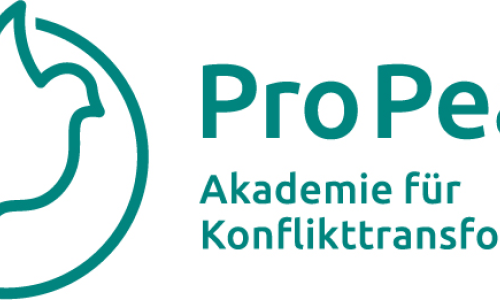Community Dialogue Processes
Dialogue is a crucial tool in conflict transformation, that creates space for genuine, empathetic connection between individuals. At its core, dialogue is more than exchanging opinions, it is a relational process that encourages people to truly listen, understand, and learn from one another, regardless of their differences. It aims to build and strengthen relationships as main drivers of the conflict transformation, while addressing shared concerns or tensions.
The course is fully focused on community, grassroots dialogue processes and it is designed to build participants' competences in dialogue and dialogue facilitation, offering practical tools, core concepts, and techniques that support meaningful and inclusive community dialogue processes.
Key Concepts
- dialogue
- dialogue facilitation
- community dialogue stages and phases
- dialogue practices and differentiation from other peacebuilding mechanisms
- communication in dialogue
- trauma-informed and power-sensitive perspectives on dialogue
Deliverables:
All expected deliverables are planned in tandem with online working sessions and self-paced learning time:
- conflict case analysis in the local reality of the learner: based on provided tools and instructions
- "dialogue do's and don'ts”: collection of dialogue practices based on proposed readings and movie
- nonviolent communication circle: collaborative practice template to translate judgements into needs and feelings
- reflection on dialogue: role of facilitator, dilemmas and lessons learned (online coffee and contribution to digital boards)
After a successful participation, participants receive a certificate and become part of our alumni network.
Total expected weekly hours: 5 to 6 hours per week.
By the end of the training, we will...
- understand dialogue as a process, its definitions, values, dynamics, opportunities, limits and challenges, and differences in comparison with other communications styles and peacebuilding mechanisms;
- practice tools that are crucial for the grassroots, community dialogue processes such as listening with empathy, nonviolent communication, and systematic and circular questions;
- reflect on the role of a dialogue facilitator, explored participants’ own styles in
- facilitation and dealing with conflicts, planned and practiced community dialogue facilitation;
- be familiar with the main theoretical aspects, stages, phases and good practices in
- implementing community dialogue processes;
- have an awareness of the role of power and privilege in peace work and dialogue processes.
The course is designed for a diverse group of learners, including professionals working or interested to work in the peacebuilding field. It is suited for people with basic knowledge in peacebuilding and conflict transformation who are willing to develop skills in the dialogue process at the community level.
Location
To apply for the course, please click on the button. Apply now
| Topics | |
| Languages | English |
| Evaluation | Certificate of Attendance |
| Target Audience | |
| Methods | |
| No of Participants | 16 |
| Accreditation | |
| Certificate |
If you have any questions about this course, please get in touch.
In order to send a message, please click on this button. Get in contact

